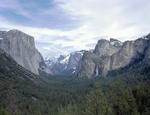Stargazers, take note: Get an eyeful of deep space at a beautiful place on earth during the 10th annual Bryce Canyon Astronomy Festival July 7-10 at Bryce Canyon National Park.
http://findout.rei.com/blog_detail/?contentid=5379241728115636010
Home
>
General Discussion
>
Topic
Re: Astronomy Festival at Bryce Canyon July 7-10
All posts are those of the individual authors and the owner
of this site does not endorse them. Content should be considered opinion
and not fact until verified independently.
July 02, 2010 06:15PM | Admin Registered: 16 years ago Posts: 17,152 |
July 04, 2010 08:02AM | Registered: 16 years ago Posts: 1,882 |
July 04, 2010 08:29AM | Registered: 16 years ago Posts: 1,375 |
Quote
tomdisco
I found it odd that the evening telescope viewing shuts down at 12:30 AM when the best seeing conditions begin to prevail. Don't they realize we amateur astronomers are sleep deprived photon junkies that stay up more than half the night?
I saw one of their setups during the daytime a few years back. They had telescopes that were pointed at the sun, but with filters.
July 04, 2010 11:28AM | Registered: 16 years ago Posts: 1,882 |
Quote
y_p_w
Quote
tomdisco
I found it odd that the evening telescope viewing shuts down at 12:30 AM when the best seeing conditions begin to prevail. Don't they realize we amateur astronomers are sleep deprived photon junkies that stay up more than half the night?
I saw one of their setups during the daytime a few years back. They had telescopes that were pointed at the sun, but with filters.
Yep, we do that too although right now there is only one lonely sunspot to observe. Most medium to large amateur scopes use relatively inexpensive "white light filters" which reveal a white disk w/ black sunspots. Some folks have much smaller but expensive dedicated solar telescopes with hydrogen alpha filters that allow them to see granular structure on the Sun's surface and actual flares along the rim.
Sorry, only registered users may post in this forum.


